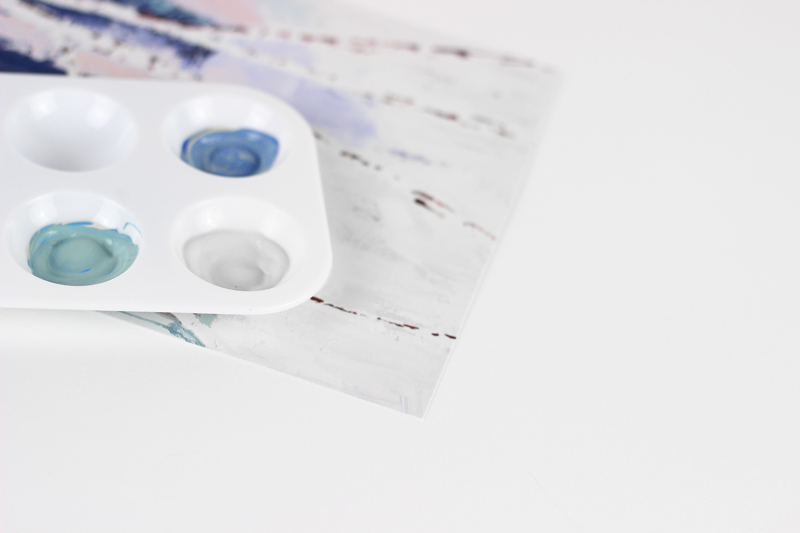10 Ways to De-Stress your Day Hour by Hour
We live in a world where being busy 24/7 is glamourised and feeling stressed has become something to boast about. Now, don't get me wrong, a little stress, especially when it's mixed with excitement just before a big challenge is totally fine and healthy, but if 'stressed' has become your day-to-day default state, it's time to do something about it.
This post is a collection of my 10 best stress-busting tips for everyday. Don't feel like you need to do all of them, just pick 1 or 2 and see how you feel after a week!
Here we go:
8 am | Have a morning ritual
Instead of immediately checking your emails and social media feeds after waking up, start your day slowly, with a morning ritual to set the tone for the day and gather your thoughts. A great thing to add to your ritual is writing. Get coffee and sit down at a desk for a couple of minutes to write about anything that comes into your head. Your plans for the day, things you are looking forward to, what you dreamt last night, anything. Or: meditate. Even just 10 minutes of daily meditation have been shown to greatly reduce cortisol levels and anxiety, by soothing the nervous system and rewiring our brain’s responses to stress triggers. I use Headspace to meditate 15-20 minutes in the morning and it’s definitely one of my favourite parts of the day.
9am | Be selective about your reading material
An easy way to curb everyday stress is to limit the amount of information you consume during the day. If you are often overwhelmed by the number of articles and links you want to check out, practice being a little more selective about what you read. The amount of information your brain can process is limited, so instead of filling it with 'empty calories' like tabloid junk, endless news articles and celebrity gossip, fill it with things that are meaningful to you. For undistracted reading, use an app like Instapaper or Pocket to save longer articles for later.
10 am | Streamline your to-do list
If you work all day, rush from one meeting to another, write email after email, but often feel like you have little to show for it at night, it’s time to re-think how you structure your day. Try this: Set clear priorities and limit the number of things you aim to achieve within one day, but make those tasks ones that will truly make a difference. Start your work day by listing no more that 1-3 things that you want to accomplish today, your MITs (most important tasks). What tasks will really propel you forward and get you a big step closer to your goals? Chances are, things like doing laundry, formatting a document or responding to emails won’t make the cut, but tasks like finally writing that proposal, designing a new concept or writing another chapter will. Focus on completing your MITs first thing in the morning, while your mind is still fresh and not cluttered up with day to day minutiae. You can always tackle the smaller things that require less brain power later on in the day.
11am | Create a distraction-free work zone
Once you’ve figured out your MITs, really focus on them, without distractions and without switching back and forth between other stuff. Multi-tasking may make you feel more productive, but research has shown that it really just slows you down, reduces the quality of your work and drains energy. So: Close all tabs, turn your phone on silent and, if you work in an office, put your headphones on (even without music) to signal to other people that you are busy and not available for chats right now. If you are used to multitasking, focusing on one single thing may feel difficult at first. Practice with shorter single-task sessions of 15-25 minutes and then gradually work your way up. Consider using a timer to help you focus and stick to regular breaks. I use an app called the Simple Pomodoro Timer and a rhythm of 25 minute work sessions with a 5 minute break after each, plus a 25 minute break after every 2 hours.
2pm | Deal with emails in short bursts
Emailing can be such a time thief and a way to avoid doing what’s really important, so it’s best to limit the number of times a day you deal with your emails and reserve it for low-energy periods. As a first step, turn off any notifications that plop up on your screen to reduce the temptation to deal with incoming emails right away, while you want to focus on other stuff. Or even better: Close your email programme completely. Then, at designated times during the day, process your emails all in one go. The key here is to only open every email once and decide what to do with it straight away. Either delete it, act on it or reply (if it’s something quick) or flag it/star it/file it for later processing. Add all appointments and dates you have to remember to your calendar immediately. Don’t leave read emails that still need some form of action sitting in your inbox. In short: Tie up all loose ends each time you process your emails so you can forget about them until next time and focus on more important stuff.
4pm | Batch smaller tasks
If you focused on your MITs at the beginning of the day, at this point you’ll likely have quite a few little things left to do. The best way to keep smaller task from draining your energy and cluttering up your schedule is to batch them. Create a separate list for 5 to 20 minute jobs and then add to it throughout the day, whenever something new comes up. Then, once a day in the afternoon or even just a couple of times per week, take an hour or so to go through your list. Deal with paper work and other administrative stuff, make all phone calls, write longer emails, fix technical issues, prep the mail and complete all pending smaller tasks.
6pm | Protect your off-hours
If you are passionate about your career it can be hard to switch off, but remember that, just like your body, your brain needs time to recharge after a long day in order to stay healthy and productive. If you work in an office, you have the benefit of being able to physically leave your work place at night, so make sure you protect that separation and don't take work home with you unless absolutely necessary. And, I know this is a bit of a controversial one, but if you can I would always suggest you don't put your work email account on the phone that you take home with you, and don't check work emails at night or on the weekends. If something came up, you would most likely only be able to deal with it in the morning or on Mondays anyway, so knowing about it early would only unnecessarily stress you out. I know, depending on your job, this may not be an option, but if it is, definitely give it a go and protect your off-time hours. If you work from home, keeping a healthy work/life separation can be a little trickier. Two basic tips: Aim for regular office hours and figure out your own 'leaving work' ritual to signal to your brain that it's time to relax. Take a walk around the block for example, or simply clean up your desk area and close all work-related tabs/folders.
7pm | Learn something
For me one of the most gratifying and fun ways to de-stress during the week is to learn something new. I love diving into new topics and teaching myself new skills. The key to making it fun is to approach it without expectations and without being too results-oriented. You are just discovering something new, to expand your horizon and see if you like it and are free to quit at anytime. Getting started is easy: Pick a skill or topic that you’ve always been curious about, then find a book, a local class or an online class and learn a little more each day. Learn French, read up on Greek philosophy or art history. Learn how to code or draw, practice your photography, write short stories or learn about video editing, whatever you like. Some great online resources: Skillshare, Lynda and Coursera.
9pm | Do something purely for fun
In today's goal-oriented culture it’s easy to get stuck in a cycle of always chasing something, always preparing for some time in the future. As if everything we do is only a means to an end and not real life yet. A key step to living a simpler, more intentional life is to make it a point to enjoy the here and now. Even regular weekdays. Do something each day that you can look forward to. Something that you like, not because it helps you reach your goals, but just because it’s fun. Meet up with friends, go see a play, take a bubble bath, or even just cook a nice meal and have some alone time with a book for 20 minutes.
10pm | Re-think your approach to social media
Yes, social media keeps us connected, but it can also be a huge source of stress, envy and social pressure. Take a moment to assess how your social media usage is making you feel. Do you mainly enjoy it and look forward to scrolling through your feeds, getting creative with your own posts and connecting with others? Or do you sometimes feel guilty when you don’t post as often as you had planned, overwhelmed by the number of messages you have to respond to or pressured to post better and more interesting content? If the negatives outweigh the positives, consider putting your social self on hiatus, even just for a couple of weeks. And: Unless you are using your accounts for work, there is really no need to have an outpost on every single channel just because. Pick whichever ones you truly enjoy and that add something to your day, and drop the others.





